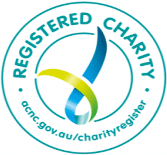What can I do?
If you have experienced or witnessed racial discrimination in social media, there are different actions you can take. As a useful tip, before you take any step, make sure you record the discriminatory content, as you might need to present this as proof when you report it.
Report it to the social media service provider
You can report the content to the social media service provider, which can put down the publication or suspend the person from using its services.
We have listed below how to report a racial discriminative publication in the main social medias:
- YouTube: how to report inappropriate content on YouTube.
- Facebook: how to report inappropriate content and report abuse on Facebook.
- Twitter: read Twitter’s rules on abusive or hateful content and how to report it.
- Instagram: how to block a user or report abusive content on Instagram.
- Snapchat: how to report abuse on Snapchat.
Take your case to a federal or state court
Any matter related to racism can be reported to the Australian Human Rights Commission (AHRC) or other state anti-discrimination bodies. You can click here for more information about how to make a complaint to the AHCR or to a state body.
After you have done that, in some cases it might be possible for you to take your case to court. As court procedures can be complicated and vary greatly from state to state, we recommend that if you wish to seek redress through the court system, you first seek advice from your nearest Community Legal Centre and/or Legal Aid to get further assistance on how and to whom you should make a complaint.
Before making the decision to start a court procedure, it is important to keep in mind that these procedures can be quite costly and lengthy. If this does not seem to be the best option for you, there are alternative dispute resolution methods available at anytime.
Go to the police
In some cases, a racially discriminatory act will constitute a crime and can be reported to the police. Which acts constitute a crime will vary depending on the state or territory you are in. If you wish to go to the police, we advise that you consult with a lawyer or your local police station first.
Make a complaint to the Islamophobia Register
In addition to the above legal and institutional reporting options, if the incident was Islamophobic you might also consider sending a complaint to the Islamophobia Register. Making a report to the Islamophobia Register ensures that incidents of Islamophobia and Anti-Muslim sentiments are securely recorded and analysed to build a body of knowledge about Islamophobia in Australia.
Research
In today’s world, social media plays a great part in a person’s life. It can be used to connect with friends and families as well as to express one’s opinions and advocate for change. The multiple purposes and interactions possible in these platforms, however, have allowed racism to spread through memes, comments, blogs and other online content.
The Social media mob: being Indigenous online report by Macquarie University has analysed how social media and online racism (or cyber-racism) influences the lives of Indigenous Australians. As pointed out by the Conversation, this report showed that more than 80% of participants said they openly identify as Aboriginal and/or Torres Strait Islander on social media. However, this identification has proved to be ‘selective’, as over 50% said that sometimes they chose not to identify as Indigenous online for fear of attracting racist or violent responses. In the survey, 88% of respondents said they had seen examples of racism towards Indigenous people on social media.
Indigenous people are not the only target in social media in Australia. For example, Facebook’s page Stop the Mosques Australia, which advocates against Islam, has over 75,000 likes. While they claim to not be a hate site and to not target individual Muslims, the existence of this type of page can have a great impact in increasing hatred toward the Muslim population.
The law
As explained by the Race Discrimination Unit of the Australian Human Rights Commission, the Racial Discrimination Act makes it unlawful to insult, humiliate, offend or intimidate another person or group in public on the basis of their race. As the internet (including social media) is one means by which words, sounds, images and writing are communicated to the public, the legislation clearly applies to this medium. Furthermore, there are federal and state laws that prohibit online harassment and threats.


